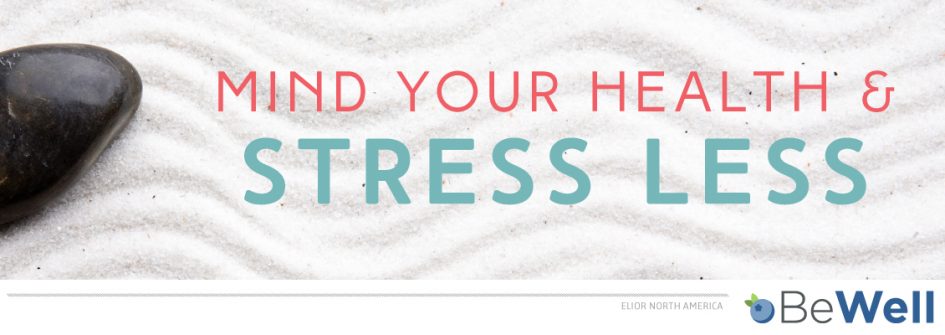STRESS-BUSTING TIPS
Stress is a natural part of life – we all experience it and some of us struggle with it every day. While acute stress is inevitable, it is important to keep day-to-day stress managed so it does not become chronic. Chronic stress has been associated with an increased risk of disease, pain, malnutrition, physical inactivity, anxiety and depression. Consider the below (tips) to help you reduce short-term and long-term stress
- Do your best to exercise daily. Walk, run, bike or participate in a fun activity that you enjoy.
- Many symptoms of stress are triggered by lack of sleep. Try to get at least 7 to 9 hours each night.
- Eating a balanced diet, including unprocessed foods, lean or plant-based protein, whole grains, fruits, and vegetables can help support a healthy mind and body.
- Find meaning in your job or extracurricular activities. Make sure you are seeking opportunities to use your skills and abilities.
- Practice meditation and relaxation, even for 5 minutes each day. Check out free wellness-based apps like Calm, Insight Timer or Daylio.
- Even when you feel you have no down time, try to set aside time each week to do something that makes you feel good—reading a book, going to a movie or catching up with a close friend.
- Devote spending time with others but also note that time alone to “recharge” can be beneficial as well.
- Refrain from smoking and excessive alcohol consumption as they can exacerbate symptoms.
- Day-to-day stress and occasional bad days are inevitable. The body and mind are designed to be able to deal with small amounts of stress. Know that you are not alone and that it is OK to seek help or a support system if needed.
SIGNS & SYMPTOMS OF CHRONIC STRESS
- Trouble sleeping
- Changes in appetite
- Irritability
- Isolation from others
- Losing interest in activities
- Difficulty focusing
DID YOU KNOW?
The Food You Eat Impacts Stress.
Have you ever felt the sensation of butterflies in your stomach? This link between what our brain thinks, and how our body feels is a clue into the complex interactions of the gut-brain axis. This connection describes the interaction between bacteria living in the gastrointestinal track and the central nervous system, including the brain. Scientists are just starting to understand this complex relationship, but we do know that certain foods influence the health of our gut bacteria. A healthy population of good gut bacteria supports our body’s ability to regulate mood, stress and anxiety.
Eating a diet rich in prebiotic foods is one of the best ways to feed healthy gut bacteria. Probiotics are elements of foods, such as fiber, that are fermented by bacteria in the gut. Prebiotic foods include asparagus, garlic, onions, bananas, almonds, oatmeal and beans. Stress less by adding prebiotic foods to your diet.
Sources: https://www.mentalhealthamerica.net/ | https://www.apa.org/news/press/releases/stress/2017/state-nation.pdf https://nccih.nih.gov/health/meditation/overview.htm
Written by: ELIOR NORTH AMERICA


October 30, 2020 at 7:19 am
Students do have a lot of stressful reasons – a lot of tasks, public speeches, the satisfaction of parents’ hopes. Stress can be a good motivator but too much stress is destructive.
Even more tips on how to avoid stress and potential triggers are described in this infographic: https://www.lifelivehealthy.com/study-stress-15-things-you-need-to-know/ I found it for my college presentation and now keep it as a reminder. I think it is a good addition to this article.
And nutrition is of course extremely important. I don’t know if it’s worth paying much attention to probiotics; the nutrient balance is important. I try to eat healthy food but sometimes I still eat fast food.
October 7, 2020 at 1:14 am
I really appreciate your way of writing which you have shared in this post.